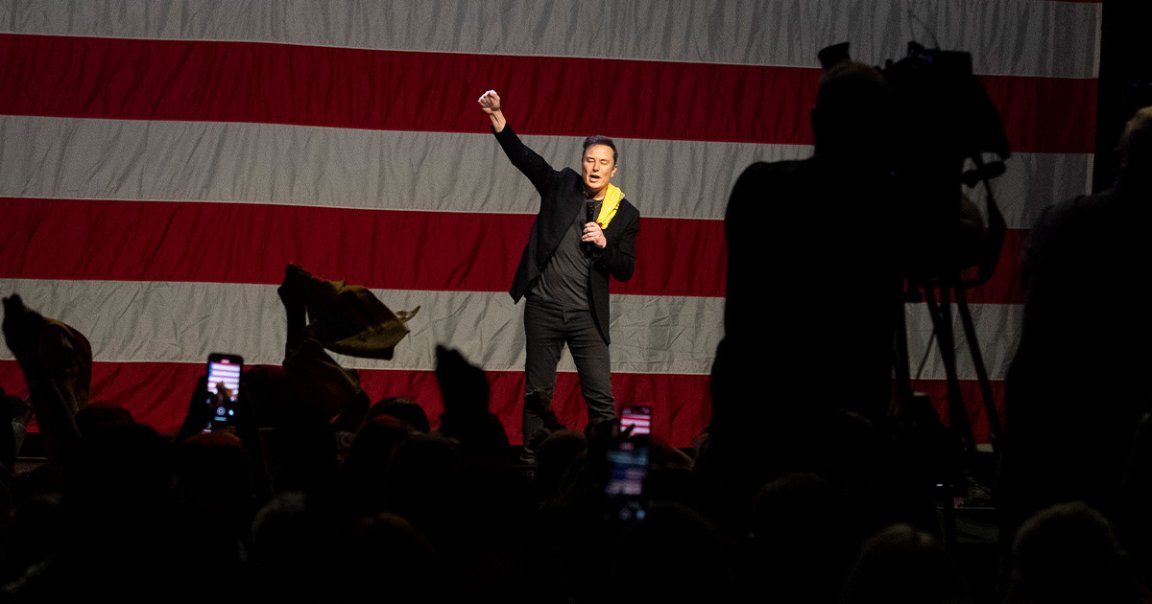
PAC Man
Elon Musk’s pro-Trump political action committee (PAC) seemed like it was acquiescing with the Justice Department’s warning to knock it off with the paying voters thing — until it started back up again.
In posts on the social network he owns, Musk announced Thursday night that two more people had been sent checks for $1 million apiece after failing to do so on Wednesday, after the DOJ sent him a warning letter informing him that his scheme likely violates federal election law.
Announced last Saturday during a Trump campaign stop, these giveaways are ostensibly part of a voter registration drive that urges people to get out to the polls. As such, Musk’s “America PAC” is randomly selecting people in swing states who sign its petition in support of the Constitutional rights of free speech and gun ownership, and the billionaire has insisted that paying petitioners is not the same thing as paying people to register to vote, which is illegal.
“You can be from any or no political party,” Musk tweeted in response to criticism from author Stephen King earlier this week, “and you don’t even have to vote.”
Soon after Musk made the announcement, a group of former Republican lawmakers and officials sent Attorney General Eric Garland a letter urging the DOJ to investigate the prizes, which they said are unheard of and potentially illegal.
It’s clear the bipartisan reachout got the AG’s attention — though it doesn’t seem to have held Musk’s for very long.
Legal Test
While the giveaways are certainly unprecedented, legal experts are divided as to whether or not they’re allowed by law.
“I’ve gone back and forth on it,” Columbia University Law School legislation professor Richard Briffault told ABC. “It clearly violates the spirit of the statute, but it’s not 100 percent clear to me that it violates the letter of the law.”
On the left coast, another law professor disagrees.
“Though maybe some of the other things Musk was doing were of murky legality, this one is clearly illegal,” UCLA School of Law professor and political scientist Rick Hasen, who heads up the university’s Safeguarding Democracy Project, wrote on his Election Law Blog.
Now that Musk is back at it again, that question may well be put to the test — and with the presidential election just 10 days away, it almost certainly won’t get answered before the election.
More on Musk’s politicking: Elon Musk, Who Has Ties to Both Epstein and Diddy, Criticizes People With Ties to Epstein and Diddy